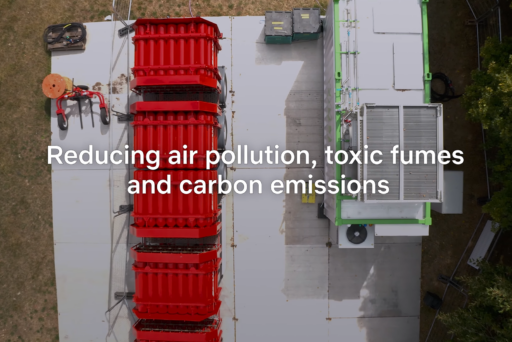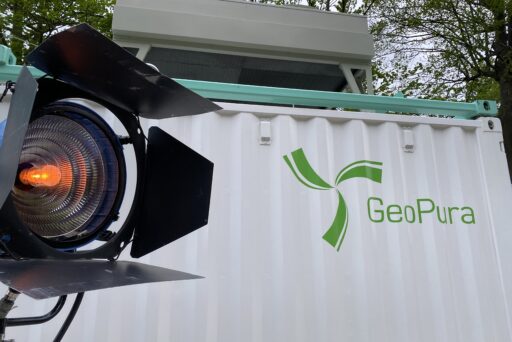Hydrogen will play a key role in enabling construction sites to go diesel-free, further highlighted in a plan launched last week (5th June 2023) by Minister for Industry and Economic Security, Nusrat Ghani MP, which aims to eliminate the use of diesel from most UK construction sites by 2035.
The Zero Diesel Sites Route Map, developed by the Construction Leadership Council as part of its CO2nstruct Zero program to decarbonise the industry, recognises hydrogen fuel-cell generators, such as the GeoPura HPU, as an alternative to diesel that can reduce emissions and noise, creating wider community benefits. It urges the industry to put plans in place support the roll out of hydrogen across construction sites as it moves to cleaner fuel sources.
This bold initiative aligns with a global movement towards sustainable practices and aims to create a cleaner, greener future for the construction sector.

The CLC’s Vision for a Diesel-Free Construction Sector:
The recently published route map by the CLC recognises the detrimental environmental impact of diesel usage, including air pollution, greenhouse gas emissions, and noise pollution.
There are currently an estimated 300,000 items of Non-Road Mobile Machinery (NRMM) used by the UK construction sector. Typically, such plant is powered by diesel consuming 2.5 million tonnes of oil equivalent (Mtoe), generating significant carbon emissions. The Zero Diesel Sites Route Map sets out practical measures to reduce this volume by 78 per cent by 2035, in line with the UK’s Sixth Carbon Budget published in 2021.
By phasing out diesel, the construction industry can make significant strides towards achieving net-zero carbon emissions and contribute to a more sustainable future.
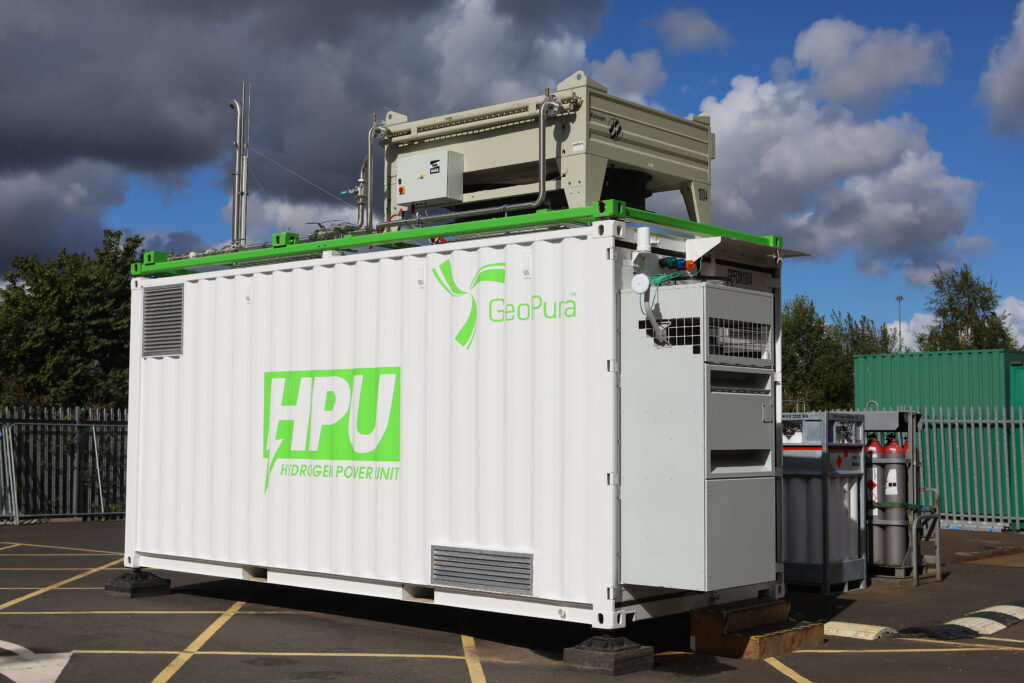
Introducing GeoPura HPUs:
One established solution to replace diesel in construction is the GeoPura HPU. This innovative technology harnesses the power of hydrogen to generate electricity, providing a clean and efficient alternative to traditional diesel generators. GeoPura units employ a fuel cell system that converts hydrogen gas into electricity, emitting only water as a by-product. This emission-free energy source offers a multitude of benefits for the construction industry and the environment. Having already been deployed in multiple construction settings including a world first at National Grid’s Viking Link construction site, the HPU offers multiple advantages over diesel.
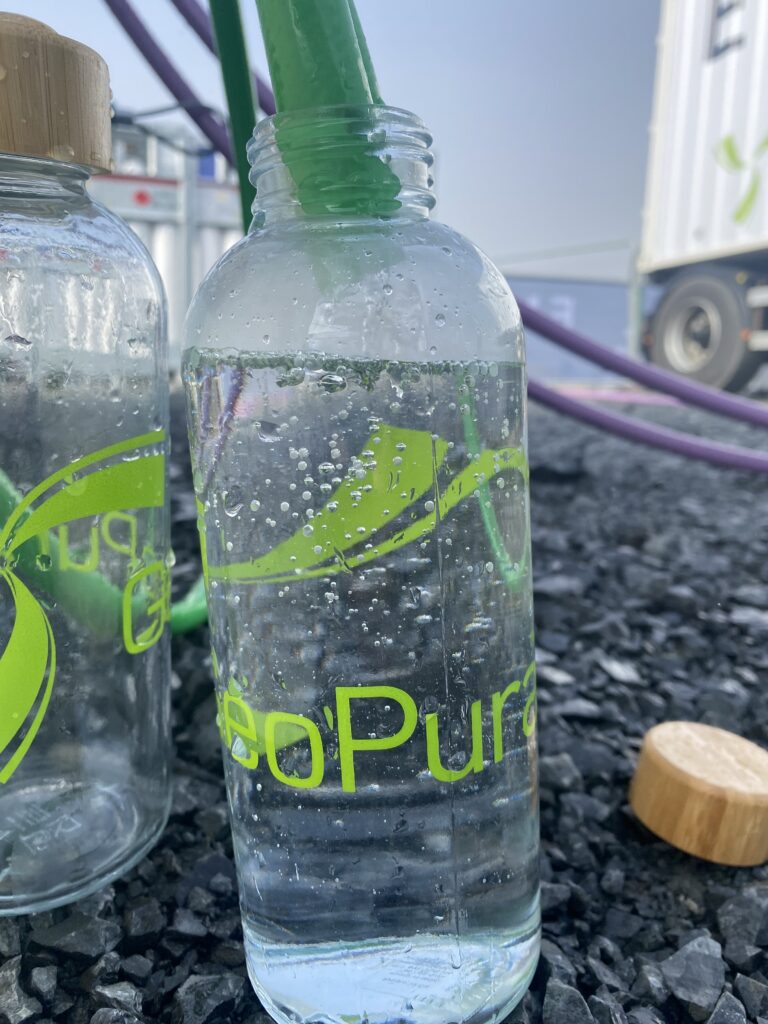
Environmental Advantages of GeoPura HPUs:
By utilising GeoPura HPUs, construction sites can significantly reduce their carbon footprint. Unlike diesel generators, which emit harmful pollutants such as nitrogen oxides (NOx) and particulate matter (PM), GeoPura units produce zero local air pollutants. This reduction in air pollution not only improves the health and well-being of workers on-site but also minimises the impact on surrounding communities and any helps mitigate against potential liabilities that may arise from this in the future.
Furthermore, GeoPura units help tackle the issue of noise pollution that has long plagued construction sites. Unlike diesel generators, which generate loud engine noise, hydrogen power generators operate very quietly. This noise reduction enhances the working conditions for construction workers and alleviates disturbances to nearby residents.
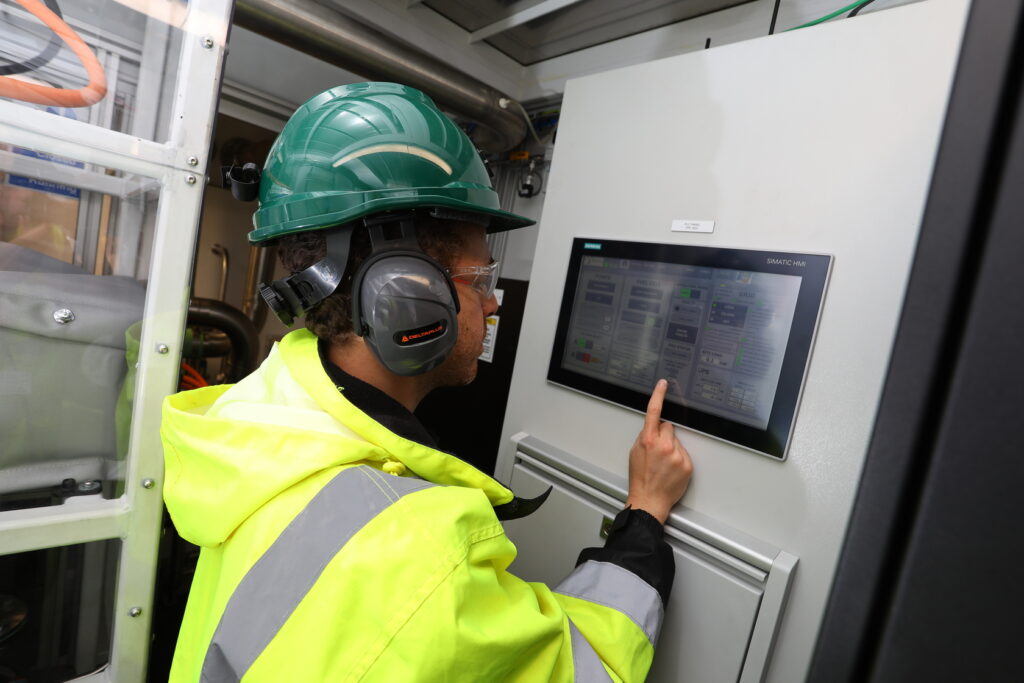
Operational Efficiency and Cost Savings:
GeoPura HPUs offer a compelling case for operational efficiency in the construction industry. These units provide a consistent and reliable source of clean energy, reducing the dependence on fluctuating diesel prices. Additionally, GeoPura’s advanced control technology enables optimal energy utilisation, ensuring efficient power generation and minimising fuel wastage.
Moreover, the maintenance requirements for the units are significantly lower compared to diesel generators. Traditional generators often necessitate frequent servicing and component replacements, leading to costly downtime. GeoPura units, on the other hand, boast a longer lifespan, require minimal maintenance, and eliminate the need for diesel fuel storage and transport logistics.
Collaborative Transition and Industry Growth:
The CLC’s guidance on eliminating diesel from construction sites by 2035 provides a clear roadmap for the industry’s transition towards sustainable practices. Embracing GeoPura HPUs, and hydrogen as a fuel, as key solutions aligns with this vision and fosters collaboration between construction companies, manufacturers, and technology providers. This collective effort will drive innovation, create new job opportunities, and accelerate the growth of the green construction sector.
The report launch took place at HS2’s Old Oak Common Station construction site, which is progressing towards cleaner construction as part of HS2’s target for all its sites to be diesel-free by 2029. As part of their efforts, HS2 successfully conducted a trial of our HPUs at the Victoria Road Crossover Box in Ealing. You can learn more about this trial here: HS2 reveals successful results of hydrogen generator trial – GeoPura
The release of the CLC’s guidance on eliminating diesel from construction sites marks a significant milestone in the industry’s journey towards sustainability. GeoPura HPUs offer a proven alternative to diesel generators, offering environmental advantages and operational efficiency.
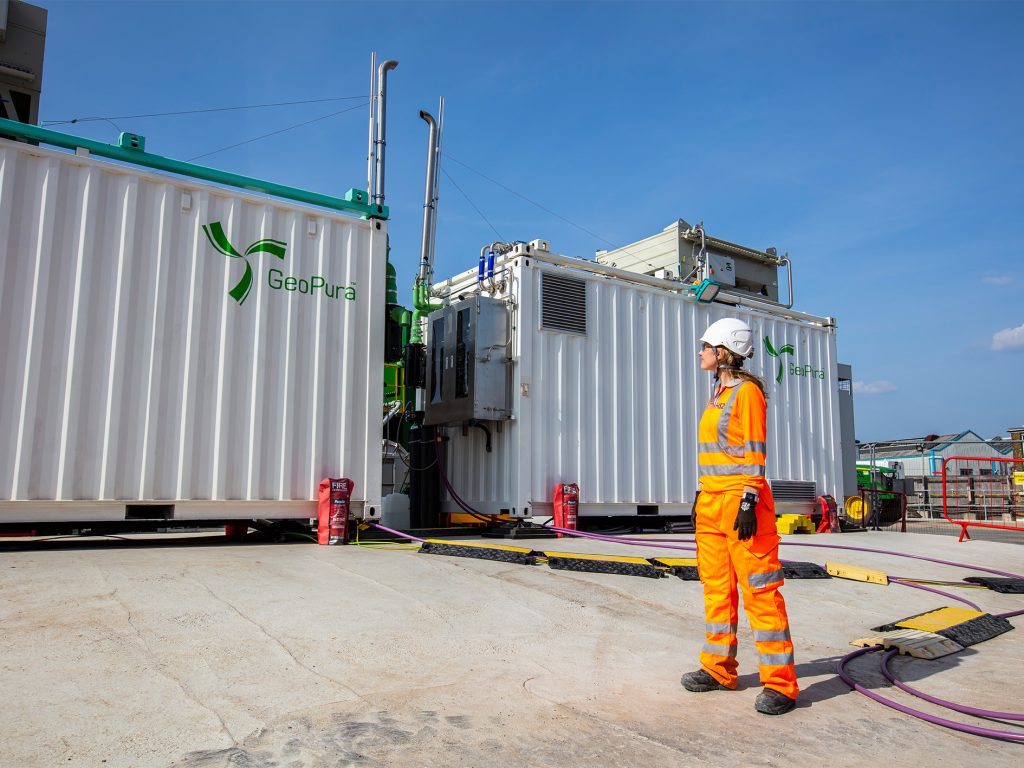
Supplying both the HPU and the hydrogen fuel to power it, GeoPura is already supporting customers in the construction sector to deploy hydrogen on sites now, working with customers to prepare hydrogen safe compounds that comply with CDM regulations and engaging staff at all levels the organisation to adopt the technology.
Get in touch to find out more about how we can help your site become hydrogen ready and start reducing your emissions today!
By embracing this transformative technology, the construction industry can play a crucial role in reducing carbon emissions and building a greener future.


